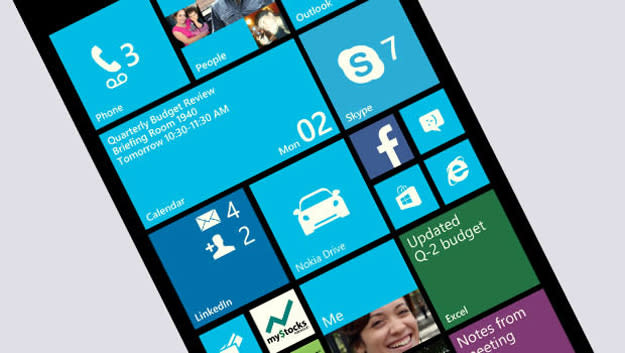It’s game over for Windows Phone as device sales hit an all-time low

Try as it may, Microsoft simply can’t compete in a smartphone market still dominated by Apple’s iPhone and an assortment of Android handsets. As part of the company’s Q4 2015 earnings report, the company disclosed that it sold just 4.5 million Lumia phones during the busy holiday quarter. By way of contrast, Microsoft in the same quarter a year-ago sold 10.5 million units, a staggering 57% drop.
DON’T MISS: 8 reasons I still can’t leave the iPhone and switch to Android
In turn, revenue from Windows Phone devices also fell drastically, dropping 49% year over year. Seeing as how the modern smartphone market has been around for nearly nine years now, one struggles to come up with a scenario that would see Microsoft actually manage to create even a tiny dent in the 1-2 punch that is iOS and Android.
Indeed, Microsoft CFO Amy Hood noted during the company’s earnings conference call that Windows Phone revenue “would decline a comparable amount in the coming quarter as well.”
As pointed out by Benedict Evans, cumulative Windows Phone sales are currently in the 110 million range. During the same time frame, iOS and Android phones together have amassed more than 4.5 billion in unit sales.
Over the past few years, it’s been easy to harp on a few reasons why Microsoft, despite its vast resources, remained an inconsequential player in the smartphone market. But now, nearly nine years after the original iPhone launched, it doesn’t really matter much anymore. It doesn’t matter that Steve Ballmer famously ignored the competitive threat posed by the iPhone, nor does it matter that the Window Phone ecosystem never got off the ground in any serious way.
What matters now is that Microsoft’s effort with Windows Phone has been nothing short of an abject failure.
Marketshare wise, Windows Phone never even managed to crack 6%, peaking at 5.6% in 2013. Today, Windows Phone marketshare stands at about 1.6%.
Windows Central adds:
None of this should be surprising. Not only have there been very few high-end Windows Phones in the last two years, but carriers have also been reluctant to sell or promote those devices in the face of Apple’s iPhone and Samsung for Android (not to mention the likes of HTC, LG, and others).
One thing that is clear, though, is that Windows Phone users left en masse during the holiday season. What exactly drove that shift is up for debate, though factors like expiring carrier contracts and tempting sales of competing devices likely compounded general dissatisfaction with the OS and the lack of an available Windows Phone upgrade path that many users face.
As for what Microsoft makes of its Windows Phone disappointment, CEO Satya Nadella last month tried to downplay Windows Phone’s failure by articulating that Microsoft “is already trying to get to a world where the device matters less than the services it is accessing.”
Related stories
Microsoft's Edge browser is apparently saving your private browsing data
How Microsoft's new iOS keyboard app will improve your texting game
Microsoft's Windows Phone VP caught tweeting from an iPhone
More from BGR: 6 ways Android outshines my iPhone 6s
This article was originally published on BGR.com
